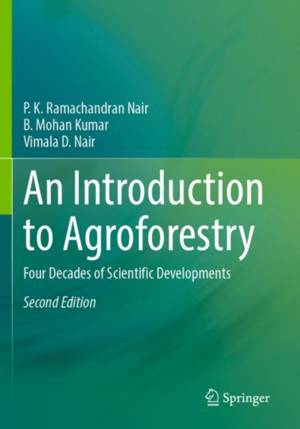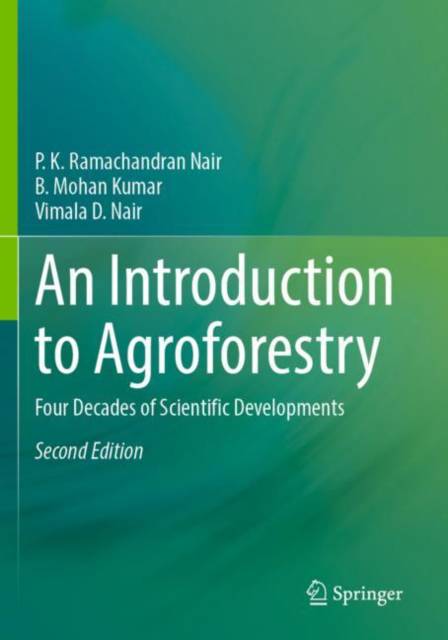
- Retrait gratuit dans votre magasin Club
- 7.000.000 titres dans notre catalogue
- Payer en toute sécurité
- Toujours un magasin près de chez vous
- Retrait gratuit dans votre magasin Club
- 7.000.0000 titres dans notre catalogue
- Payer en toute sécurité
- Toujours un magasin près de chez vous
An Introduction to Agroforestry
Four Decades of Scientific Developments
P K Ramachandran Nair, B Mohan Kumar, Vimala D NairDescription
Agroforestry - the practice of growing trees and crops in interacting combinations - is recognized the world over as an integrated approach to sustainable land-use. Agroforestry systems, being multifunctional, facilitate not only the production of food and wood products but also provide a variety of ecosystem services such as climate-change mitigation, biodiversity conservation, and soil quality improvement.
Agroforestry research has made rapid strides since organized efforts started in the late 1970s. Today, a vast body of scientific knowledge and an impressive array of publications on agroforestry are available. Four World Congresses on Agroforestry conducted once every five years since 2004 have brought together the global community of agroforestry professionals and practitioners to share and discuss the emerging trends and paradigm shifts in this field. The fifth Congress is scheduled to be held in Québec, Canada.
However, a comprehensive college-level textbook incorporating these research findings did not exist until this book was first published. The first edition of this book in 1993 (Nair, P. K. R., 1993) is out of print and somewhat dated. This revised edition, with emphasis on the scientific developments during the past more than four decades, addresses this long-felt need.
Spécifications
Parties prenantes
- Auteur(s) :
- Editeur:
Contenu
- Nombre de pages :
- 666
- Langue:
- Anglais
Caractéristiques
- EAN:
- 9783030753603
- Date de parution :
- 14-01-23
- Format:
- Livre broché
- Format numérique:
- Trade paperback (VS)
- Dimensions :
- 178 mm x 254 mm
- Poids :
- 1428 g

Les avis
Nous publions uniquement les avis qui respectent les conditions requises. Consultez nos conditions pour les avis.






